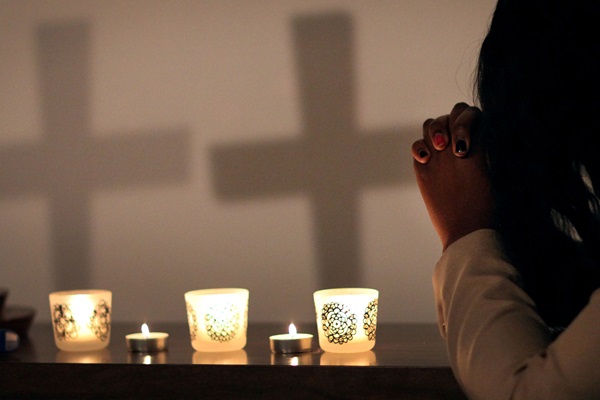For United Methodists, prayer is a “means of grace” through which we experience the presence and grace of God. In prayer, we make ourselves available to God, opening ourselves to the power of God’s love that heals and forms us into the image of Christ.
Christians understand prayer as spiritual communication with God, similar to our human communication with one another, involving both speaking and listening. In prayer, we talk to God and God talks to us. In prayer, we have an active role in the process of spiritual communication.
The Rev. Carmen Gaud, retired editor of El Aposento Alto (the Upper Room), says, “Prayer is communion with the Creator of the Universe, a conversation in which we receive as much as we communicate. In real prayer, we are not only expressing what is in us, but we are being transformed by the One to whom we speak.”
Meditation can be a specific practice that leads us into prayer or it can be a separate spiritual experience. The Latin verb meditārī (to meditate) means to reflect on or contemplate.
The Rev. Tom Albin with Upper Room Ministries notes, in meditation we are not “active,” rather “receptive” and “passive.” We slow down and listen in order to be present with God. When we meditate, we try to quiet our heart and mind in order to perceive — to contemplate — to meditate on a word, phrase or object. Within the Christian tradition, we meditate on God, or Jesus (the living Word of God) or on Scripture (the written word of God).
Prayer and meditation practices such as centering prayer, lectio divina and walking prayer help us become aware of God’s presence and experience deeper communion with God.
This content was produced by Ask The UMC, a ministry of United Methodist Communications.





